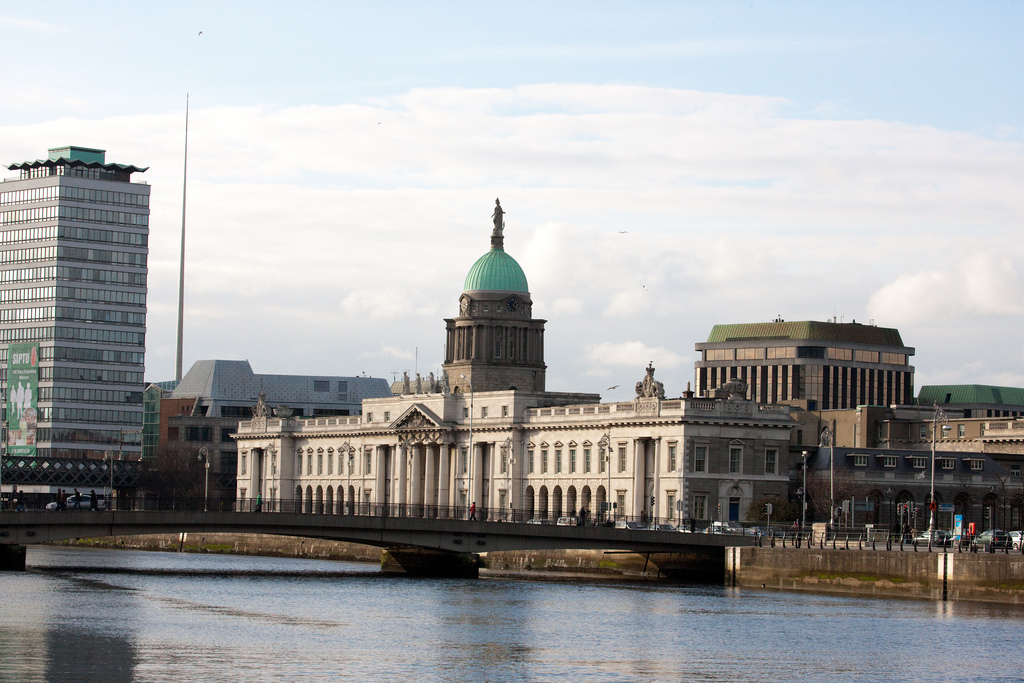Does it really matter whether most people own their own homes or rent them? In my view it does matter. While some may say, and with a good deal of common sense, that the social priority must be that people have homes in the first place, rented or not, it does not follow that there are no social, political or economic consequences for Ireland if we are gravitating towards a society in which home ownership, as distinct from occupancy, is denied to the majority of citizens in the long run.
If most homes are owned by the State or public bodies or privately owned companies ultimately responsible to wealthy investors, the economic and political power balance between citizens and their democratic state is profoundly affected. Politicians of the far left may scoff at political arguments in favour of distributing and dispersing economic resources widely across society in the form of private property, but most centrists and liberals see the issue differently.
Of course, there is private property which is not just the home of individual citizens. But until now the most commonly found major asset in the ownership of ordinary citizens has been their homes and other land – agricultural or commercial.
For many decades, ordinary citizens have saved and invested in their homes as their principal property asset. It provides security and certainty; it provides families with shared wealth. It gives those who are retired a means to ensure their financial well-being. It allows for the assistance of dependent family members. It gives protection from expropriation or eviction at the behest of others.
For Marxists, preoccupation with private property is a bourgeois thing; the idea of a property-owning democracy is a politically misguided and retrogressive notion. In their eyes, the struggle between people and capital has little or no room for such notions or concerns.
But liberal democracy sees society differently; instead of class struggle against capital and the bourgeoisie, a just social model seeks to recruit all citizens to a social status in which ownership of resources is not centralised in the hands of the state or the capitalistic few – a society in which the lived economic existence of all its citizens are recognisably similar. You may call that liberal democracy or social democracy; it is not about class war and it is not about choosing between rampant capitalism and over weaning collectivism.
The liberal republican view is that citizens’ rights are best protected when their property rights are respected; that does not mean that property rights and distribution of property should not be subservient to what Article 43 of our constitution describes as “principles of social justice” and the “exigencies of the common good”. Indeed, Article 45 enjoins the Oireachtas with the pursuit of fair social distribution of property and of economic resources.
All of this is increasingly relevant in present circumstances where our political debate is centred on home ownership and homelessness.
In that context, I was very surprised to see the deputy property regulator crossing swords with Dublin City Council over the council’s plans to encourage minimum levels of owner occupancy in the context of large-scale housing development.
She said that the proposals for the city’s draft development plan which suggest that a percentage of apartment developments should be available for sale found no basis in Ministerial guidelines. It is as if the ministerial guidelines provided for in our planning and development law have assumed a quasi-constitutional status that completely trumps the rights of elected members of local authorities to pursue policies plainly in accordance with the constitutional values mentioned above.
I am no fan of much of what Dublin City Council is and is not doing to Dublin. I think that the Council is not fit for purpose and that it needs radical reform – along with the rest of Ireland’s system of local government which has largely deteriorated into local prefectures of the Custom House.
But I am far more concerned with the role of the Planning Regulator which is the central enforcer in a system that seeks to deprive local democracy of any strategic power and responsibility as to how Ireland is planned and developed.
Who comes up with these guidelines? The Custom House bureaucracy. Who converts the guidelines into mandatory rules? The Custom House? Who decides on the composition of the Office of the Planning Regulator? The Custom House.
Who is competent to advance the need for some degree of owner occupancy in new developments in our cities? The Minister and the guidelines written for him by unelected departmental officers?
I want to return real planning power to elected members of local authorities and to release them from the shackles of centralised control which have made a weak idea of local democracy into a complete sham.
One hundred years after the burning of the Custom House, is anyone willing to strike another light?

